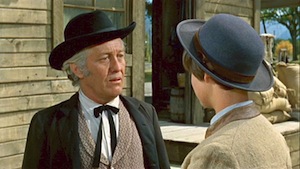
In a horse trade, it’s not just the horse that can get taken for a ride.
Cable television lobbyists in Sacramento seem to be earning their pay checks. A proposed revision to the California Advanced Services Fund (CASF) has a couple of very nice presents for the industry. Assembly bill 1299, which will be heard by the utilities and commerce committee on Monday, gives benefits to cable companies which might have the perverse effect of discouraging public housing authorities from pursuing broadband projects.
First, AB 1299 sets $20 million aside to connect public housing units to broadband service, which could come from cable providers. Another $5 million is earmarked for adoption programs in public housing, which is another word for signing up subscribers. So far, so good for broadband companies and public housing authorities.
But before cable companies can sell television and broadband service to people in public housing, they need what’s called “right of entry”. In other words, a building owner – private or public – generally has the right to pick which television company can install wires. So the second gift to cable in AB 1299 is a requirement that a public housing authority has to allow “any broadband provider that is willing to deploy broadband services” into its buildings before it can even apply for a grant.
Looked at one way, it levels the playing field with telephone companies, which have a much easier time going wherever they please. But it also takes away negotiating power from public housing authorities, which can leverage their control over right of entry to gain concessions and cash flow from video service providers. They might not want to give up that ongoing benefit just for a chance to apply for a one-time grant.
Not for the first time, lawmakers are considering legislation that includes a self-destruct button.
